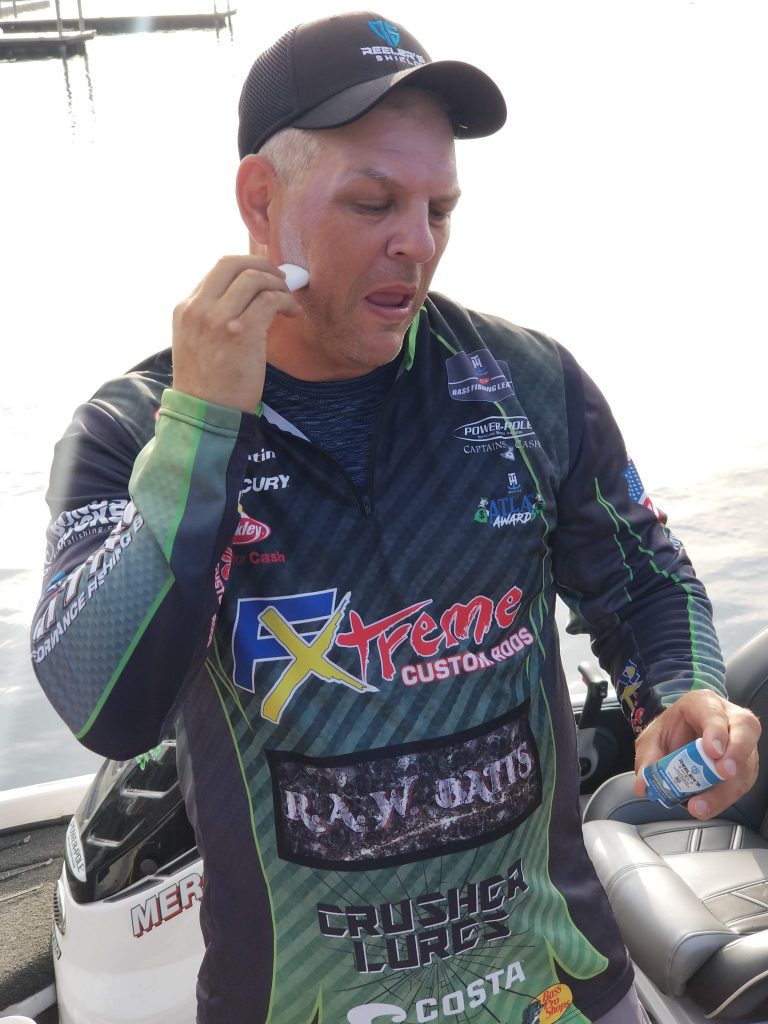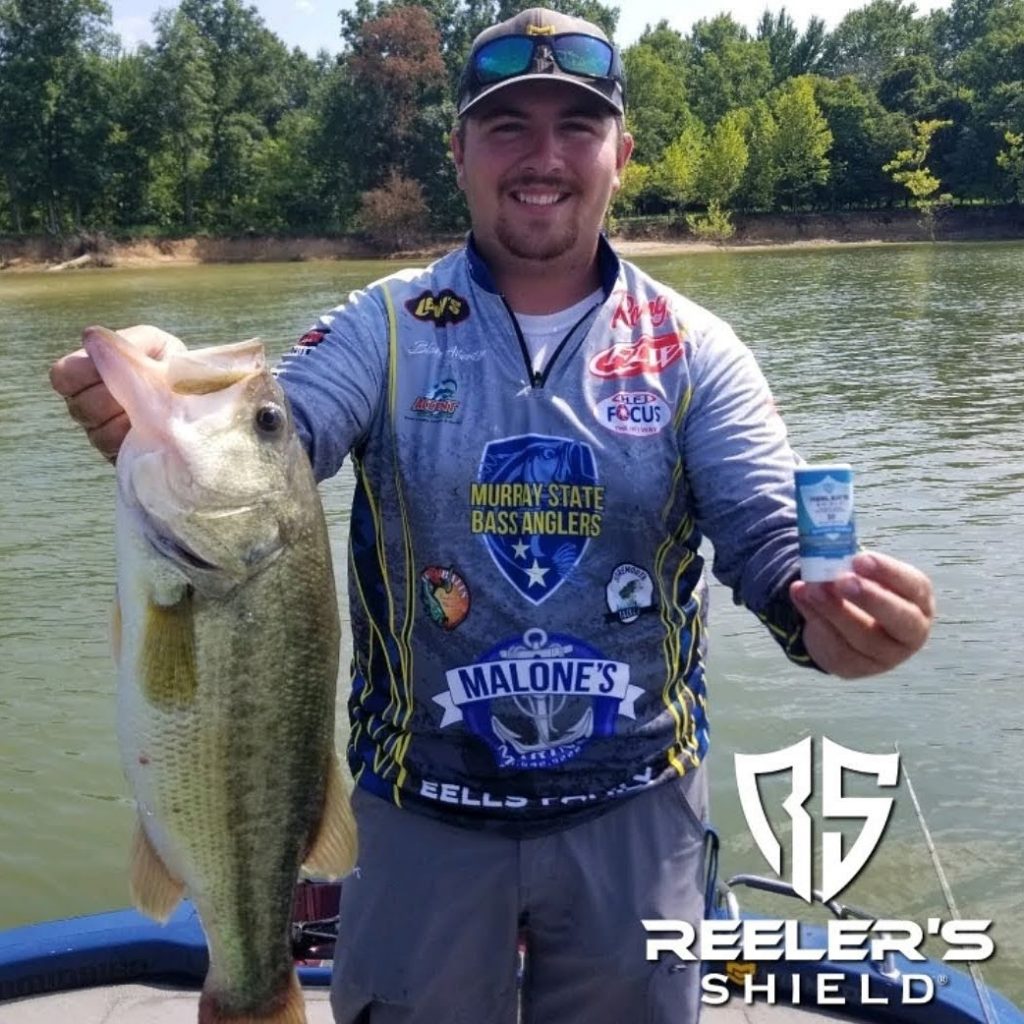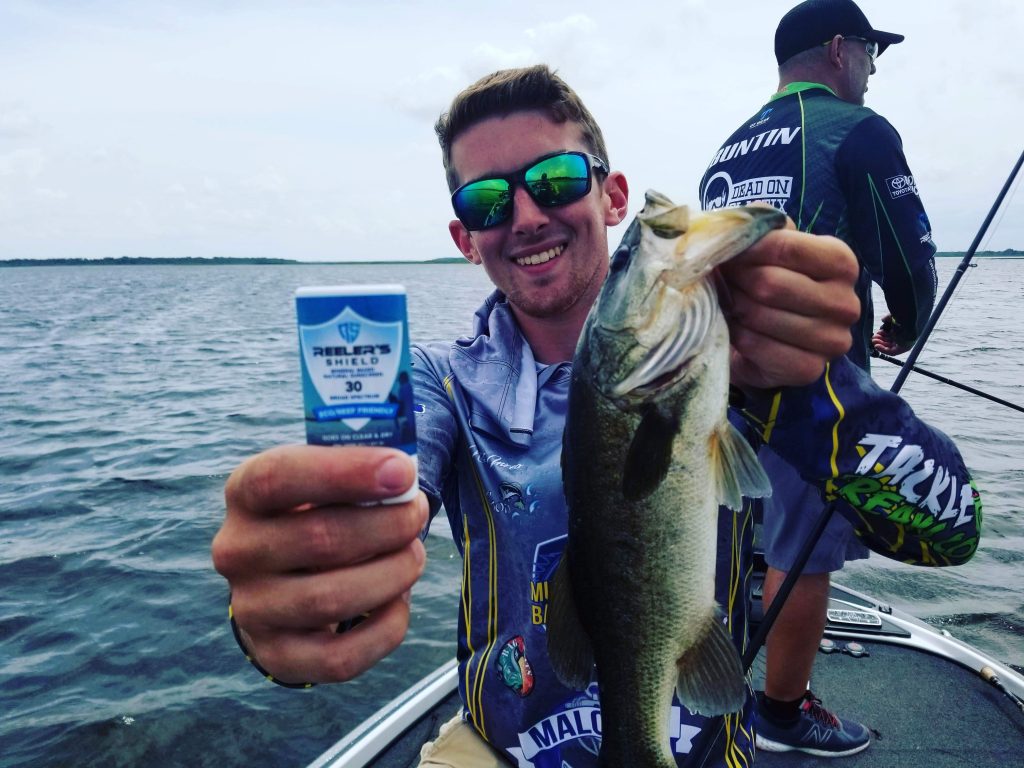Choosing the Best Sunscreen for Fishing
Us fishermen and hunters pride ourselves (a bit delusionary at times) on being tough and rugged outdoorsmen. We brave the elements, be it hot, cold, sunny, rainy, windy, snowy, whatever to venture out in quest of catching more fish and/or harvesting that whitetail, gobbler or filling our game bag with birds and small game. The last thing that we concern ourselves with is a little sunburn and we just can’t be bothered with wimpy things like the best sunscreen for fishing or hunting.
Who has time for preventive measures like fishing sunscreen? The sun isn’t that strong, it’s cloudy, it is still early in the day and besides the stuff is stinky, greasy, it stings our eyes, it gums up our equipment, messes up stuff on the boat and is just a pain in the rear to put on and deal with. We come up with all of kinds of reasons and excuses, some valid and some not.
While we may be good hunters and fishermen and tough guys, sometimes we aren’t the sharpest pencils in the box.
Current data from the American Academy of Dermatology show that one out of every five people will develop skin cancer in their lifetime and it is estimated that more than 9,500 people are diagnosed with skin cancer. That is Every Day.

Remember the fishing not a sunburn.
The American Cancer Society’s estimates for melanoma (the most dangerous form of skin cancer) that approximately 106,110 new cases will be diagnosed in 2021 and overall in 2021, about 7,180 people are expected to die of the disease.
The AAD advises people to seek shade, wear protective clothing, including a long-sleeved shirt, pants, a wide-brimmed hat, and sunglasses with UV protection. It also emphasizes the need to apply the best waterproof sunscreen with a Sun Protection Factor (SPF) of 30 or higher to all skin not covered by clothing.
Melissa Thierry is a dermatological physician associate who handles medical, surgical and cosmetic dermatology issues daily, many of which are sun related. She points out that many people don’t realize how much the sun affects skin aging and how that exposure can result in major issues, including cancer.
“It’s been said that 90% of our skin changes are a result of sun damage. The sun thins our skin through breakdown of collagen and causes premature wrinkles and discoloration among other things,” she said.
“Sunscreen has been proven time and time again to lower the risks of cancer for people in all different ages, from children up to older people in later years,” Thierry said. “I often have patients tell me they wish they could ‘go back in time’ and wear more sunscreen and that they didn’t realize how much damage they were causing.”
Thierry explained that there are two main categories of sunscreen, physical and chemical and stresses using at least a sunscreen with a SPF of 30.
“Physical sunscreen is mineral based on minerals like zinc oxide along with titanium dioxide, which act as physical barriers and shield to protect you from the sun’s rays and works immediately when you apply it,” Thierry said. “Zinc is the superstar because it protects against all forms of ultraviolet A (UVA) and ultraviolet B (UVB) radiation.”
“Chemical sunscreens certainly work but they can take up to 15 minutes to be absorbed in order to provide protection and they are not nearly as water resistant as mineral “
“SPF 30 is the sunscreen magical number since it blocks 97% of the sun’s rays, “Thierry added.

Who says you can’t catch fish when wearing sunscreen?
“Not all sunscreens are created equal. SPF 30 in a chemical sunscreen isn’t as effective as an SPF 30 in a mineral based physical sunscreen,” Thierry concluded.
Keith Pittman is one of the founders and the head of sales for Reeler’s Shield, a mineral based natural sunscreen designed specifically with anglers and outdoor enthusiasts in mind. He has a family history of skin cancer and when he was a young man, his mother developed skin cancer on her face. The result was surgery to remove the cancer and reconstructive surgery. Those events affected Pittman and started his journey to learn about skin cancer and how to prevent it.
To that end, he became part of a company that focused on producing dermatological products and that included sunscreen. Being an avid fisherman and outdoorsman, he regularly spoke to anglers and found that many were dealing with skin cancer. He also discovered that sunscreen and the use of it was not popular among fishermen.
“I realized how the fishing industry was in need of not only quality skincare products but that one of the reasons so many anglers were dealing with skin cancer is that they hate applying and wearing sunscreen,” Pittman said.
“When I parted ways with that company, I wanted to focus on how we can get anglers convinced that a quality fishing sunscreen will work for them and initially focus on tournament anglers,’ Pittman explained. “The reasoning was that they are the ones that are concerned about anything messing up their chances of catching a fish that could potentially cost them hundreds of thousands of dollars.”
Pittman conducted extensive interviews to discover the reason why fishermen hated to use sunscreen and the result was the development of Reeler’s Shield, what he considers the best sunscreen for fishing.

Perfect for your face, ears, neck and back of your hands.
“We were working with the company helping us manufacture it, going through different formulas and checking off each point as we developed it,” Pittman explained. “Things like making sure it was all natural and hypoallergenic, goes on dry, is scent free, is a reef safe sunscreen, doesn’t irritate or sting your eyes, resistant to sweat, water and wind, easy to apply and other issues we found that are important to anglers.”
“We even went as far as making sure that when you snap the lid close if you accidentally drop it off the boat, the stick floats,” Pittman added. “We wanted to make sure that there is no excuse why fishermen shouldn’t wear sunscreen considering how it is so important for them.”
Pittman pointed out that chemical sunscreens are made to penetrate the skin and once they are absorbed, they break down harmful UVA and UVB rays as they penetrate the skin. The negatives of chemical sunscreens are that they take time to be absorbed, they still allow the rays to penetrate the skin and the user may have an allergic reaction.
On the other hand, since the main components of the best mineral sunscreens, like Reeler’s Shield, are zinc oxide and titanium dioxide, as soon as it is applied on the skin it starts working to reflect those harmful rays away from the skin’s surface.
“When you apply a mineral based sunscreen, it’s like putting millions of little mirrors on top of your skin, where it reflects the UV and UVA and UVB rays right off the surface,” Pittman said. “While we can’t scientifically prove it, I’ve personally found and anglers who use Reeler’s have told me that they feel cooler and we feel that it is because those rays are being reflecting off the surface of the skin.”
SPF ratings can be confusing. The official definition of SPF number is that it is how long the sun’s UV radiation would take to redden your skin when using the product exactly as directed verse the time without sunscreen. So theoretically, a sunscreen with an SPF 30 would take 30 times longer to burn your skin than if you had no sunscreen.
According to Pittman there is more to this analogy than meets the eye.
“First off, there is no sunscreen on the market that blocks 100% of the UV rays. In addition, with a chemical sunscreen, as soon as you apply it to your skin it starts breaking down. If you jump in the water it is going to be diluted,” Pittman said. “Depending on the product, the SPF rating is going to drop down every 10 minutes.”
“On the other hand, with a natural mineral based sunscreen with an SPF 30 rating since these particles are on the top of your skin, you have to literally wipe them off. If you jump in the water and not towel yourself off you are still going to retain that protection,” Pittman explained. “Depending on the situation and your activity you may have to re-apply it but since it is a stick it is easy and convenient to use.”
“When we started Reeler’s Shield our main goal was to get tournament anglers to start wearing it because we hoped that once the average fisherman, the weekend warrior, saw these pros wearing sunscreen and still catching fish they would realize they could also,” Pittman concluded. “Farmers and fisherman are the hardest people to convince about sun protection but they are the people that are in the outdoors all the time and they are the ones that need it the most.”
Questions to ask yourself when looking for in the best sunscreen for fishing. Is it environmentally safe sunscreen? Is it the best chemical free sunscreen? Is it the best zinc oxide sunscreen? What is the best spf sunscreen for my needs? What is the best physical sunscreen for the face and body?
Contact
Keith Pittman
Keith@reelers-shield.com
Info@reelers-shield.com
812-363-6420
